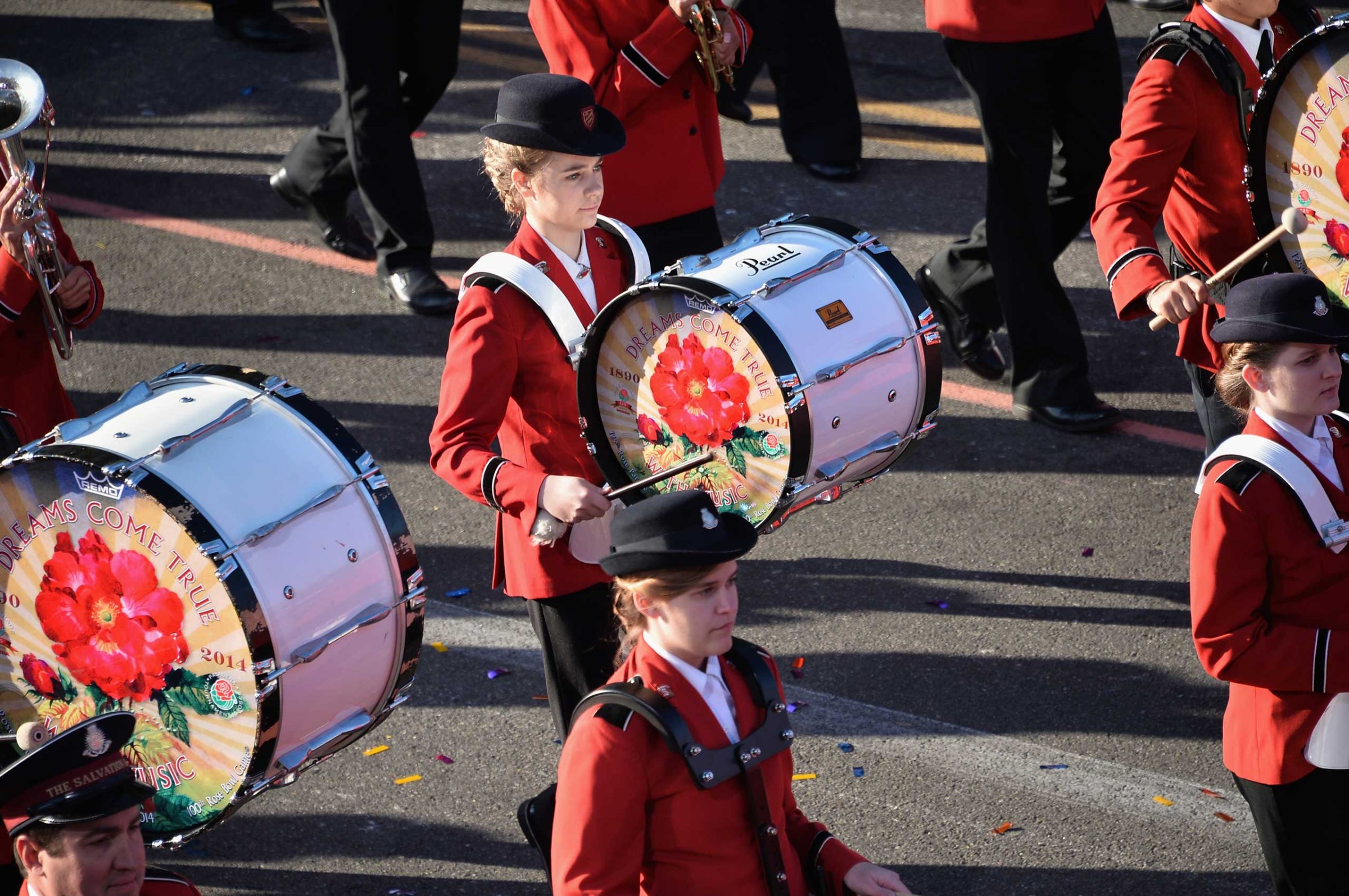
Upon receiving an invitation to stand on the first ever Sikh float at Thursday’s Rose Parade, I was both touched and conflicted. I felt honored to be included, and as I debated whether it would be worth flying to California for the event, I realized the immensity of this moment.
American Sikhs have lived in this country for nearly 125 years, yet the community remains relatively unknown. Recent studies show that a majority of Americans still do not know about the Sikh tradition — a monotheistic and devotional religion, and the world’s fifth largest — and the alarming rate of hate crimes targeting American Sikhs attests to this ignorance.
In a way, creating awareness about the tradition is a life and death proposition for the Sikh community, and hosting a float at the Rose Parade is an opportunity to tell the American Sikh story while touching millions of hearts and minds.
The story of Sikhs in America is compelling because it is the quintessential American story. Sikhs came to this country in the late 1800s to make a better life for themselves and their families. They embraced the American dream and contributed to building this nation, from constructing railroads and farming land to educating our children and serving in the U.S. military.
Like every other immigrant community, Sikhs persevered through bouts of xenophobia and discrimination. The first race riots targeting American Sikhs occurred in 1907 in Bellingham, Washington. Despite serving with the U.S. Army during World War I, Bhagat Singh Thind was denied U.S. citizenship because of his ethnicity.
The Sikh community persevered through these challenges and has become an integral part of the American fabric. American Sikhs have made a number of notable contributions to the global society, including the invention of fiber optics, the defense of human rights violations, and the production of world renowned devotional music.
It’s time we start telling this story.
In addition to representing a shared American experience of immigration and contribution, I realized that standing on the first ever Sikh float would also mean something profoundly personal to me.
My grandparents on both sides lived in West Punjab when India and Pakistan were divided in 1947 following British rule. Historians describe this event – Partition – as the largest mass migration in human history, with an estimated death toll ranging between a quarter million and 2 million casualties. My grandparents were some of the lucky few to survive the exodus and settle in India.
My father grew up in the nascent country of India, and he immigrated to the United States in the 1970s to pursue his doctorate in engineering. He left India in time to avoid the anti-Sikh massacres of 1984, as well as the decade of disappearances in Punjab. The current political situation in India remains a serious concern to this day, as evidenced by recent reports of Hindu nationalist pressuring Christians and Muslims to convert.
My parents wanted to make a better life for their family and decided against returning to India. Instead, they settled in San Antonio, Texas, where I was born and raised. While my entrepreneurial parents built a business that created more than 500 jobs in South Texas, my three brothers and I busied ourselves with playing soccer, basketball, and watching as many Spurs games as possible.
Growing up in Texas, I was exposed to a fostering community in America that valued every individual heritage. I was also inspired to learn that our nation and my Sikh faith both espouse the same basic values: freedom, equality, service, and justice.
At the same time, I realized that America is not a perfect place. We have our own problems in this country, both embedded in our past and emergent in the present. Over the last few months alone, we have watched racial divides and unjust policing tear apart this country, from Ferguson, Missouri, to Staten Island, New York. We have also learned horrific details about how our own government violated its own ethics and agreements by engaging in inhumane torture.
We have serious issues that we must address as a nation. I was raised to believe that being a patriot is to help make our country the best place it can possibly be. This commitment to serving my country through advocacy is why I ultimately decided to accept the invitation to represent the American Sikh community at the Rose Parade this year. It’s an opportunity for all of us to assert the importance of America’s most treasured ideals, including its diversity and freedom of religion, and ensure they are preserved for generations to come.
Simran Jeet Singh is the Senior Religion Fellow for the Sikh Coalition and a PhD candidate in the Department of Religion at Columbia University. He currently serves as a Truman National Security Fellow and the Rachel F. and Scott McDermott Fellow for the American Institute of Indian Studies. Simran has earned degrees from Harvard, Columbia and Trinity Universities, and writes and speaks frequently on issues related to religion, human rights, civil liberties, hate violence, community advancement and social justice.
More Must-Reads from TIME
- Why Trump’s Message Worked on Latino Men
- What Trump’s Win Could Mean for Housing
- The 100 Must-Read Books of 2024
- Sleep Doctors Share the 1 Tip That’s Changed Their Lives
- Column: Let’s Bring Back Romance
- What It’s Like to Have Long COVID As a Kid
- FX’s Say Nothing Is the Must-Watch Political Thriller of 2024
- Merle Bombardieri Is Helping People Make the Baby Decision
Write to Simran Jeet Singh at sjs2180@columbia.edu